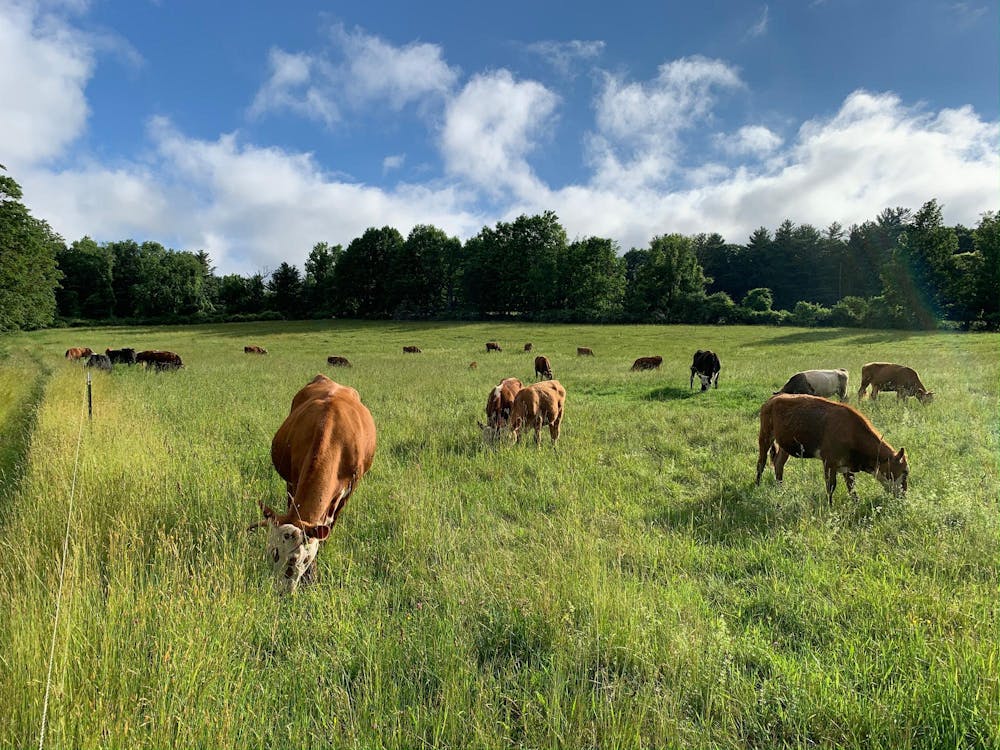The following is a letter to the editor and reflects the author’s views alone. For information on how to submit a piece to the Opinion section, click here.
To the Editor:
I sympathize with Thomas Buckley ’26 in his recent article, “It’s time for Princeton to stop serving beef.” Buckley correctly identifies that the amount of carbon produced by the American food industry is harmful to the environment, and rightly suggests that it should not remain the status quo. However, while our current dependence on factory farms negatively impacts the environment, this is far from the only way to farm. The conversation about what we eat is worth having, but we must expand our discussion beyond an all-or-nothing attitude.
Anyone who’s worked with cattle can tell you that a field with cows pruning the grass, trampling the brush, and fertilizing the soil is healthier than one without. Allowing cows to move through fields as they naturally would result in both better land and better beef, not to mention a higher quality of life for these animals compared to those which are factory farmed. Beyond bearing personal witness to the restorative faculties of regenerative livestock farming, there is now greater widespread recognition of sustainable practices as a better path forward. These practices mitigate the negative effects of food production while also benefiting the local economy, preserving cultural practices, and providing communities with higher-quality food.
And regarding the climate, grass growth when promoted by proper grazing sequesters more carbon than produced by the animal. It is not raising cattle, then, that is problematic, but rather how they are raised. Currently, most farming practices are not the best for animals, humans, nor the land, but are best for profit. While the prevalence of factory farming has its own economic, social, and political complexities, our notion of dependence on unsustainable and unethical sources of meat need not remain as it is.
There exists a false dichotomy between protecting the climate and eating meat. This, beyond being untrue, misdirects our concern to what we are eating as opposed to what matters: how it is produced.
The solution is purchasing and consuming local, sustainable beef. While I have, on more than one occasion, suggested to my friends that we should put cows on the Forbes golf course — depending on the quality of grass, a cow might need two acres per year, which would allow a herd of up to 120 cattle on Springdale Golf Club — I recognize that New Jersey has an abundance of local farms with sustainable practices. In addition to addressing climate concerns, supporting local farms also provides major economic, cultural, and health benefits. Instead of advocating for the unnecessary elimination of beef, Princeton should direct its energy to continue to find and expand its use of local sources for our food.
Those who are, as Buckley says, “serious about safeguarding the future of our planet” should be open to creative solutions that balance the cultural and logistical realities of our campus and of farming. We can and ought to support farmers who are helping the land, their animals, and us — and as an institution rich with resources and thought, we have a unique opportunity to advocate for more than platitudes. Let’s not go cold turkey on the beef.

Nadia Makuc is a sophomore from Monterey, Massachusetts intending to major in Classics. You can reach her at nadia.makuc@princeton.edu.









